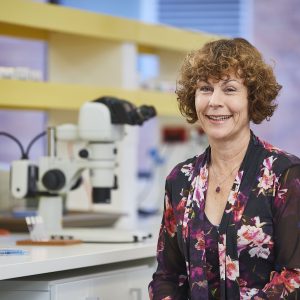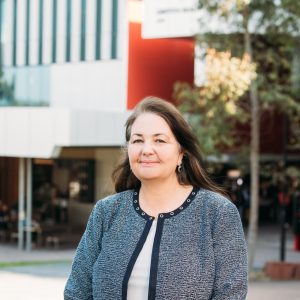Today is International Women’s Day, and to celebrate we would like to introduce three of the amazing women who help to oversee Connectivity, Traumatic Brain Injury Australia.
“Imagine a gender equal world.
A world free of bias, stereotypes, and discrimination.
A world that is diverse, equitable, and inclusive.
A world where difference is valued and celebrated.
Together we can forge women’s equality.”
Collectively we can all #BreakTheBias.
Lindy Fitzgerald, Connectivity CEO

Lindy is a Professor of Neurotrauma, jointly appointed by Curtin University and the Perron Institute. She coordinated generation of the original national collaborative plan and is the provisional Chair of the Mission for TBI Expert Advisory Panel.
Judi Moylan, Deputy-chair of the Connectivity Board
 Deputy-chair of the Board, Judi Moylan AO has a wealth of knowledge and experience in a number of different industries. Having worked in education, as a real estate agent and company director, Ms Moylan then took a foray into politics becoming the first West Australian woman to be elected as a Liberal MP for the House of Representatives in the seat of Pearce in 1993. This kick-started a 20-year career in politics, during which time Ms Moylan served as the Minister for Family Services, along with assisting the Prime Minister for the Status of Women.
Deputy-chair of the Board, Judi Moylan AO has a wealth of knowledge and experience in a number of different industries. Having worked in education, as a real estate agent and company director, Ms Moylan then took a foray into politics becoming the first West Australian woman to be elected as a Liberal MP for the House of Representatives in the seat of Pearce in 1993. This kick-started a 20-year career in politics, during which time Ms Moylan served as the Minister for Family Services, along with assisting the Prime Minister for the Status of Women.
Upon her retirement from politics in 2013, Ms Moylan took on the role of President of the Board of Diabetes Australia. Although she gave up the position on the 1st of January 2019, Judi is still heavily involved with the organisation today, and in 2016 was awarded an officer of the Order of Australia (AO) for her advocacy of the diabetes community, women’s issues and her distinguished career as a Federal MP.
Elizabeth Kendall, member of the Connectivity Board
 Professor Elizabeth Kendall is a Professor of Disability and Rehabilitation at the Menzies Health Institute Queensland, Griffiths University, and is the Executive Director of The Hopkins Centre – Research for Rehabilitation and Resilience.
Professor Elizabeth Kendall is a Professor of Disability and Rehabilitation at the Menzies Health Institute Queensland, Griffiths University, and is the Executive Director of The Hopkins Centre – Research for Rehabilitation and Resilience.
Since completing her PhD on Adjustment following Traumatic Injury in 1997, Prof Kendall has built a research agenda in rehabilitation and service systems for people who are managing the consequences of serious injuries, disabilities or chronic conditions.
As a part of her work, Prof Kendall has amassed over $50 million in research grants and consultancies; and has had over 200 publications in high quality journals including Social Science and Medicine, the American Journal of Public Health, Rehabilitation Psychology, and Disability and Rehabilitation. Prof Kendall has additionally designed and directed complex community evaluations, and randomised controlled trials of major health reform projects.
